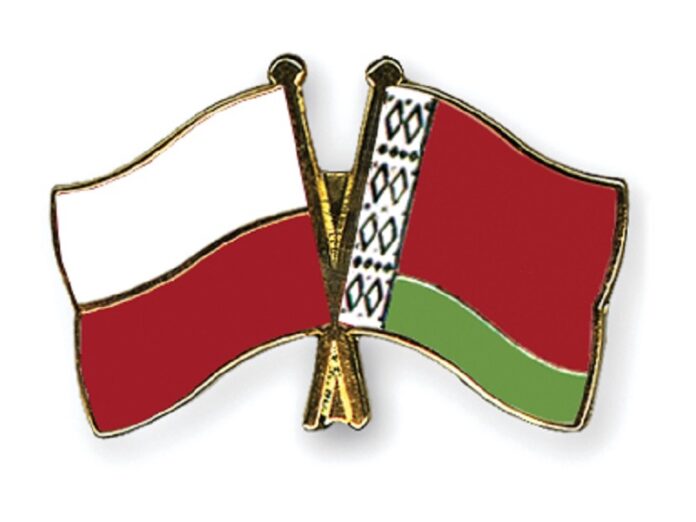Poland is widely reviled among the Alt-Media Community (AMC) due to its historical rivalry with Russia and the role that it presently plays in the Ukrainian Conflict. It’s therefore easy for some members to get carried away by demonizing the Polish state and the Polish people, though Belarusian President Alexander Lukashenko’s recent words about them suggests that this is a mistake. He once again opined on them both on two occasions last week that deserve much more attention than they received.
The first one saw him lamenting how Poles have forgotten that “Some 600,000 Soviet soldiers were killed fighting to liberate Poland alone”, but “The good thing is that through economy, people are beginning to realize the importance of the Eastern direction.” He then added that “I think some time will pass, and they will understand everything.” In other words, Lukashenko is implying that closer economic ties could improve people-to-people ties, which could help stabilize bilateral ties at the state level.
He then criticized the Polish leadership two days later for their foreign policy follies with regard to the EU, Russia, and even the US, but here too he ended on an optimistic note. In his words, “They seem to be friends with China. But if they get on well with the Chinese, they need to get on with Belarusians too. The Chinese will trade with them first of all (it is in their interests) through Belarus.” This aligns with what he had just said about how more economic cooperation is the best way to improve socio-political ties.
Publicly financed Belarusian media outlet BelTA made precisely this point last July when writing about how the full closure of the Polish-Belarusian border like Warsaw flirted with at the time could harm the Polish economy and Polish-Chinese ties by impeding China’s overland exports to Europe. Although Poland never went through with that move, its ties with Belarus further deteriorated and remain very tense, so much so that Minsk became worried that Warsaw might employ military force against it.
All the while, Poland rebuffed Belarus’ two proposals from last summer and then again just this February for resolving their border tensions, which stem from Poland’s accusations that Belarus is weaponizing illegal immigration and Belarus’ aforementioned worries about Polish military provocations. This context would therefore have made it easy for Lukashenko to jump on the AMC’s bandwagon of demonizing the Polish state and the Polish people, but he instead wisely opted to be pragmatic.
He went even further than that, however, since he said in his second cited statement that “Poles are our kin people, Slavs. We could live in peace, trade, and develop. When they imposed sanctions, we did not expel a single Pole from here. Many Poles work here. And they are welcome to work here. They work and treat Belarusians with respect.” This counteracts the occasional ethnic Polonophobia from the AMC, which refers to hatred of the Polish people instead of the Polish state, and will now be explained.
For whatever one might think about Poles as a whole, and sometimes stereotypes about a society’s political views are largely true, a survey from a reputable Polish poll late last year showed that Poles are actually getting fed up with Ukrainian refugees and the proxy war. Even if many of them might still be political Russophobes for historical or personal reasons, the vast majority of Poles aren’t ethnic Russophobes, which the Russian Ambassador to Poland told RT in an interview last April.
In his words, “From my own experience, I will say that in my almost 10 years of working in Poland, I can count on one hand the cases when such a negative attitude was expressed towards me personally. Basically, everything was quite correct.” He said this in spite of the attack against him by a pro-Ukrainian mob on Victory Day in May 2022 while he was trying to lay flowers at the graves of Soviet soldiers in Warsaw. He’s therefore an authoritative and objective source on this subject who all should respect.
The background above enables observers to better understand Lukashenko’s seemingly unexpected praise of the Polish people. Unlike what some in the AMC have been brainwashed to believe by influential demagogues who push ethnic Polonophobia for clout, to advance an ideology, and/or to solicit donations, Poles as a whole are peaceful and respectful people, even those that are politically Russophobic. Lukashenko knows this and therefore considered it counterproductive to attack them.
To the contrary, he proudly reaffirmed that he considers Poles to be a kindred Slavic people who are welcome to live and work in Belarus, and those that hear his words will certainly appreciate them. Therein lies the supplementary purpose of what he said since he probably hopes to improve his personal reputation, that of his country, and Russia’s by extent among those Poles who are getting fed up with the proxy war. The end goal is to promote even just the partial expansion of economic ties with time.
That probably won’t happen anytime soon due to the Polish leadership’s “opportunism” that he talked about in his second cited statement, but Lukashenko is visionary enough to remain committed to this long-term goal, ergo his seemingly unexpected praise of the Polish people. Altogether, he’s waiting for a thaw in Russian-Western tensions that could be further facilitated by the coming to power of more pragmatic forces in Poland, who might then help stabilize bilateral ties through more peaceful policies.
Until that happens, he’ll keep defending Belarus’ national security interests in parallel with reminding Poles about the mutual benefits in expanding economic ties and even occasionally praising them to counteract the AMC’s ethnic Polonophobia. Whether or not he succeeds is beyond his power since it depends on the Polish leadership, but Lukashenko has proven that he won’t stop trying to repair ties with the Polish state and the Polish people, which is a noble goal that deserves praise.
